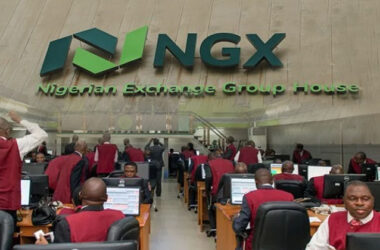The National Bureau of Statistics (NBS) has said that the total value of capital importation into the country has declined by 2.40 per cent to $1.54 billion in the second quarter of the year (Q2 2022) compared to $1,57 billion in the preceding quarter. However, when compared to the corresponding quarter of 2021, when capital importation was recorded at $875.62 million, it represented an increase of 75.34 per cent.
According to the Nigerian Capital Importation Q2 2022, which was posted on the NBS website on Thursday, Lagos State topped the destination for foreign capital inflows with $1.05 billion, accounting for 68.66 per cent of total inflows into the country.This was followed by investment into Abuja (FCT), valued at $453.95 million (29.57 per cent).
Anambra attracted $24.71 million, Kogi $2 million and Ekiti 40.50 million during the quarter.However, portfolio investment accounted for 49.33 per cent ($757.32 million), representing the largest capital importation in the review period. It was followed by other investment category which was valued at $630.87 million or 41.09 per cent of total inflows while Foreign Direct Investment (FDI) accounted for $147.16 million or 9.58 per cent of total capital imported in Q2.
Disaggregated by sectors, capital importation into banking had the highest inflow of $646.36 million amounting to 42.10 per cent of total capital imported during the period. It was also followed by capital imported into the production sector, which stood at $233.99 million or 15.24 per cent. Furthermore, the financing sector attracted $197.31 million or 12.85 per cent inflows.
According to the statistical agency, capital importation by country of origin revealed that the United Kingdom (UK) ranked top as the major source of capital imported into the country with 781.05 million, accounting for 50.87 per cent. This was followed by Singapore and the Republic of South Africa valued at $138.58 million (9.03 per cent) and $122.26 million (7.96 per cent) respectively.
Categorised by banks, Citibank Nigeria Limited ranked highest in with $450.94 million (29.37 per cent).This was followed by Standard Chartered Bank Nigeria Limited which attracted $323.24 million (21.05 per cent) and Stanbic IBTC Bank Plc with US$163.92 (10.68 per cent).
Meanwhile, Advisory Partner and Chief Economist, Price water house Coopers (Pwc), Dr Andrew Nevin, yesterday posited that the current biggest challenge to Nigeria’s economic development remains the pervasive insecurity in the country. Speaking on Arise News Channel, THISDAY’s broadcast arm, Nevin said insecurity was having a knock-on effect on all sectors of the Nigerian economy and driving up inflation, especially the prices of food.
“I firmly believe the biggest economic problem we’re having right now is (in)security. And the reason for this is that insecurity is having incredible knock-on effects around the country, in addition to the great losses, which are just terrible.
“It creates a real problem for example, in the agricultural space and that’s why we are having such rapid inflation. We know there are various forces in the Ukraine war, supply chain problems, but the biggest thing driving inflation in agriculture is the fact that when farmers are insecure, they change their planting patterns,” he argued.
Stressing that there had been various calls for oil subsidies removal, especially when prices were low, he lamented that the impact was currently hurting the Nigerian economy.
He argued that for Nigeria’s quest to diversify its economy not to take decades, the country must look beyond the traditional way, adding that the path being advocated for Nigeria was to begin to export high value-added services in the global value chain. Noting that the world has changed technologically in the last number of years and particularly with COVID-19, Nevin opined that Nigeria can unleash its population to begin to do remote work.








